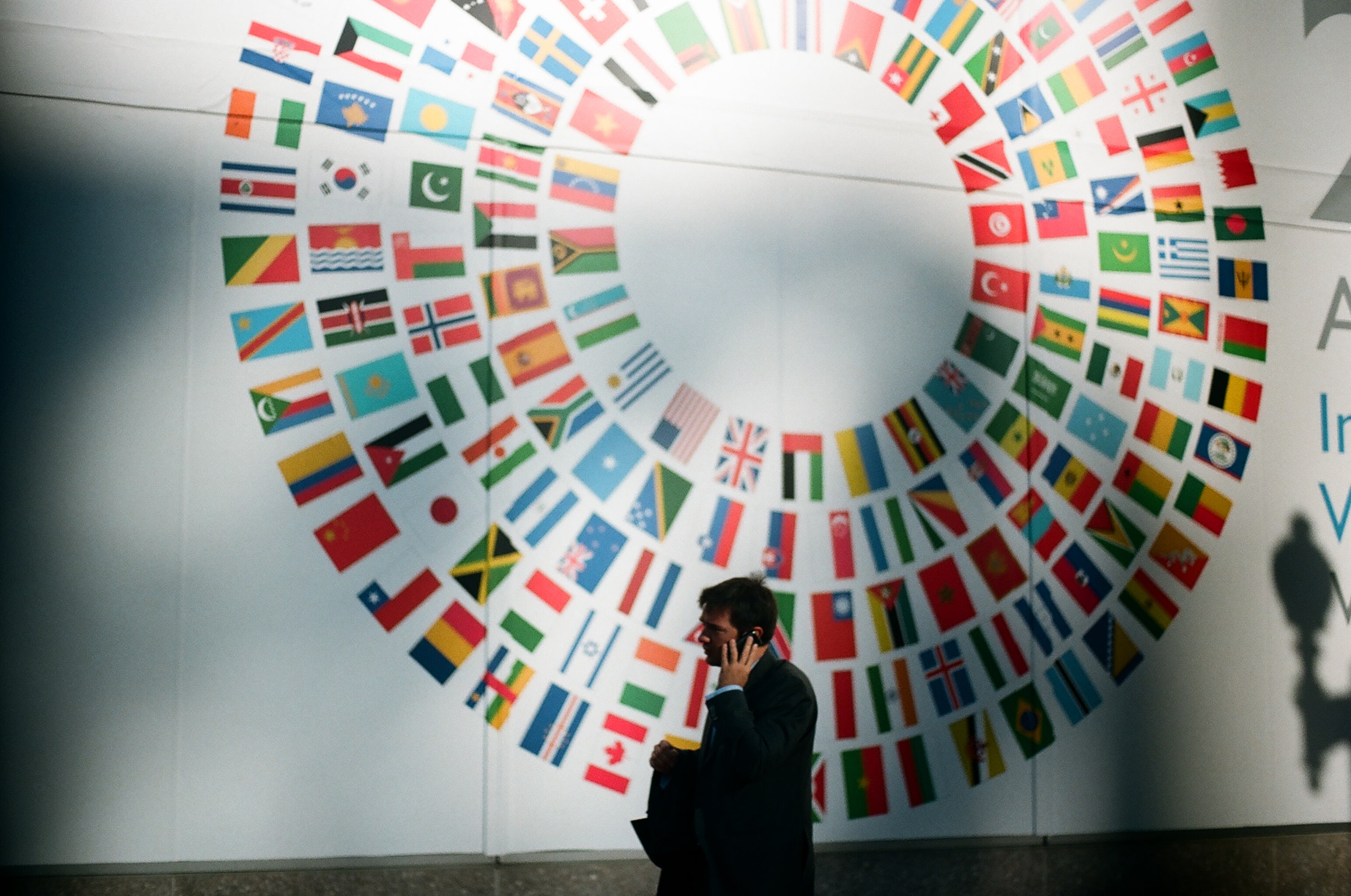Slums are ubiquitous in almost all capital cities of the world, and Dhaka is no exception. But as Bangladesh gradually rises on several global indices, disparities between the privileged and others widens apace. In this post, Lamia Mohsin discusses how the lack of legal governance structures in these slums create space for local goons and slumlords to ‘provide’ essential services to residents through a vexatious network of illegality and corruption.
Urban slum settlements in Bangladesh give us an insight into the dichotomies between ‘formal’ and ‘informal’ structures of governance. By formal, we usually refer to a set of rules, codes of conduct and practices enforced by institutions, with societal and legal legitimacy by the authority in question. Informal governance refers to the normative enforcement of unwritten, unofficial and uncodified norms of institutions which provide a range of goods and services to a certain group of beneficiaries. Today, informal arrangements such as political patronage, rent-seeking and exploitation can no longer be considered as consequences of poor or failed governance but as components of the multifarious dimensions of public authority and how it functions in society to ensure distribution of limited goods and services.
According to a UNDP Report from 2019, slum dwellers account for more than 33 per cent of the population of Dhaka, and the government can meet only 7 per cent of the annual housing demand while the rest are left to the private sector. Where the private sector may be able to cater to the needs of the middle-income or at best the lower-middle income group, the urban poor are left with no choice than to seek accommodation in slums. Over the years, reports of fires and explosions of cooking gas cylinders in slums have become commonplace, and the source of such accidents can often be traced to illegal and unsafe utility provisions (electricity, gas and water connections) provided by ‘slumlords’, mostly musclemen of ruling parties.
The ‘system’ of governance in urban slums manifests itself in different forms and can be categorised based on its characteristics. Keeping in mind the benchmark of formality, governance here is formal when it is channeled via an authorised hierarchical structure which in turn goes on to dictate the intricate processes of decision-making, as commonly observed in state-led institutions. At the opposite end, informal governance, as seen in informal settlements of Dhaka, reflects a multi-stakeholder system based on the interactions between a number of actors from different categories — collective, individual, public and private. The mechanisms in operation therefore transcend the sole authority of public bodies and are influenced by the degree of cooperation and interaction between non-state/government actors, especially political stakeholders.
Mandarpara: Service Delivery in Slums
Since water and other utility supplies in slums cannot by accessed legally, local musclemen (called ‘mastaan’) — who are de facto leaders of slums like ‘Mandarpara’ — resort to alternative mechanisms to ensure supplies. Through illegal tapping of water from the local water supply and sewage authority’s main water motor, the mastaans ensure availability of water at an exorbitantly high(er) price via price discrimination and creation of a monopoly. They lead/dominate the slum ‘committees’, and are patronised by local political entities, members of parliament, government officials and local law enforcers. Capitalising on their political connections, they exercise power in decisions regarding local affairs of slum communities, as well as the distribution of utilities, distorting prices and establishing a monopoly system run like a cartel or syndicate. Usually one or two such ‘syndicates’ control the supply of utilities within a slum area. Each has their own ‘staff’, manager and rent collector, and the number of employed staff depends on the number of slum families their services cover. Installation of service lines, technical support, etc. are provided by government employees in gas and water supply offices in exchange for bribes. Slum areas are divided among syndicates, and each collects service fees from houses within their zones. Payments are usually made between the 10th-15th of every month to collectors appointed by the syndicates, and failure to pay within the designated time leads to disconnection/withdrawal of utility of services.
It is not unknown that a portion of government employees and law enforcers aid and abet the illegal businesses of these syndicates by claiming particular ‘shares’ of the profit. Syndicate leaders on average earn between BDT 4–10 lakh (US$3,600–9,200 approx.) per month, from which they also pay law enforcers, and government employees in the water, electricity and gas supply offices.
Slum-dwellers living in uninhabitable spaces are precariously placed, owing to their socio-economic vulnerabilities due to their low income, lack of bargaining power and unstable jobs. Entrapped by the constant fear of unemployment and eviction, they have no choice but to pay higher amounts as rent and fees for enjoying utility services, as their landlords are supported by slumlords and mastaans. Major fire incidents (like the ones in 2016 and 2017 in Korail-Boubajar) happened due to hazardous and illegal gas connections made of plastic and (or) rubber hose-pipes, which cause frequent leakage. But slum residents have negligible bargaining power to improve their status quo and are forced to remain silent.
The patron–client system which is a part of the ‘cultural’ landscape of informal governance in Bangladesh is one which tends to operate on the whims of the patron (in this case, political musclemen in slums) thus perpetuating inequality, discrimination and corruption in terms of service delivery. It is needless to say that corruption in the form of bribery, nepotism and favouritism is rampant, to the extent that it is institutionalised in Bangladesh.
The Governance Approach: Power Relations
The approach of state and local governments towards informal settlements is generally characterised by a combination of political and bureaucratic patronage. Nevertheless, integrating a deeper understanding of informal governance structures in complex political and institutional low-income urban settings can be helpful in finding common ground on how to address a macro problem as such.
It is practically impossible to eradicate slums in Bangladesh, as evicted slum-dwellers relocate to another area to build a new slum. Despite the imbalanced power structures in slums being labelled as ‘informal’, they are in fact well-established ‘formal’ systems. Slum-dwellers are victims of a closed, unjust, exploitative and discriminatory system which deprives them of any bargaining power.
The increasing number of slums is known to have a correlation with the socio-economic context and macro-economic policies of a country. The expansion in size and number of people living in slums represents the unwillingness of the government to develop and enforce coherent policies which address the core issues in informal settlements. Identified as ‘scattered’ and ‘disorderly’, slum areas are therefore vulnerable to long-term and perpetuated development challenges.
Respective governments should make policies which aim to create income generation opportunities for slum dwellers, thus enabling them with the financial capacity to afford basic amenities, including housing. Government interventions need to encompass ways to empower local authorities in charge of providing utility services, so that services can be offered to low-income populations residing in slums. In the long term, there is no alternative to reshuffling of policy interventions that reflect a change in the mindset of state authorities regarding inhabitants of slums, and acknowledgment of their rights and privileges as citizens of a democratic country.
*
The views expressed here are those of the author and do not represent the views of the ‘South Asia @ LSE’ blog, the LSE South Asia Centre or the London School of Economics and Political Science. Please click here for our Comments Policy.
This blogpost may not be reposted by anyone without prior written consent of LSE South Asia Centre; please e-mail southasia@lse.ac.uk for permission.
Banner image © Sunny Imroose, Tejgaon, Dhaka, 2022, Unsplash.
*







